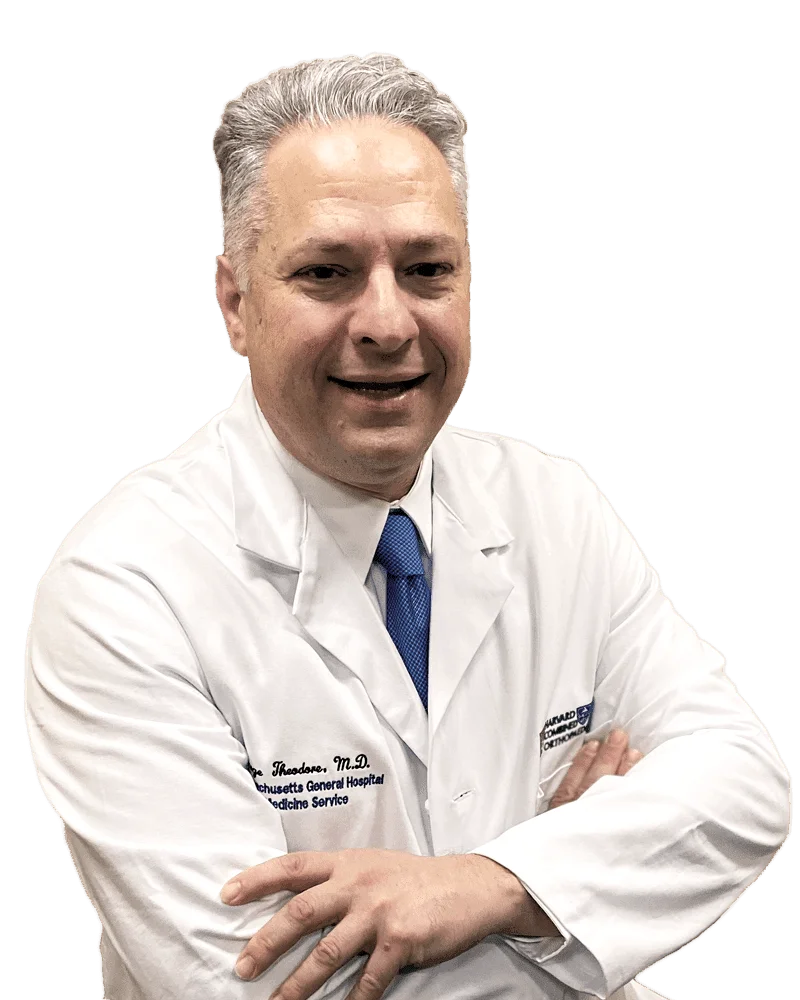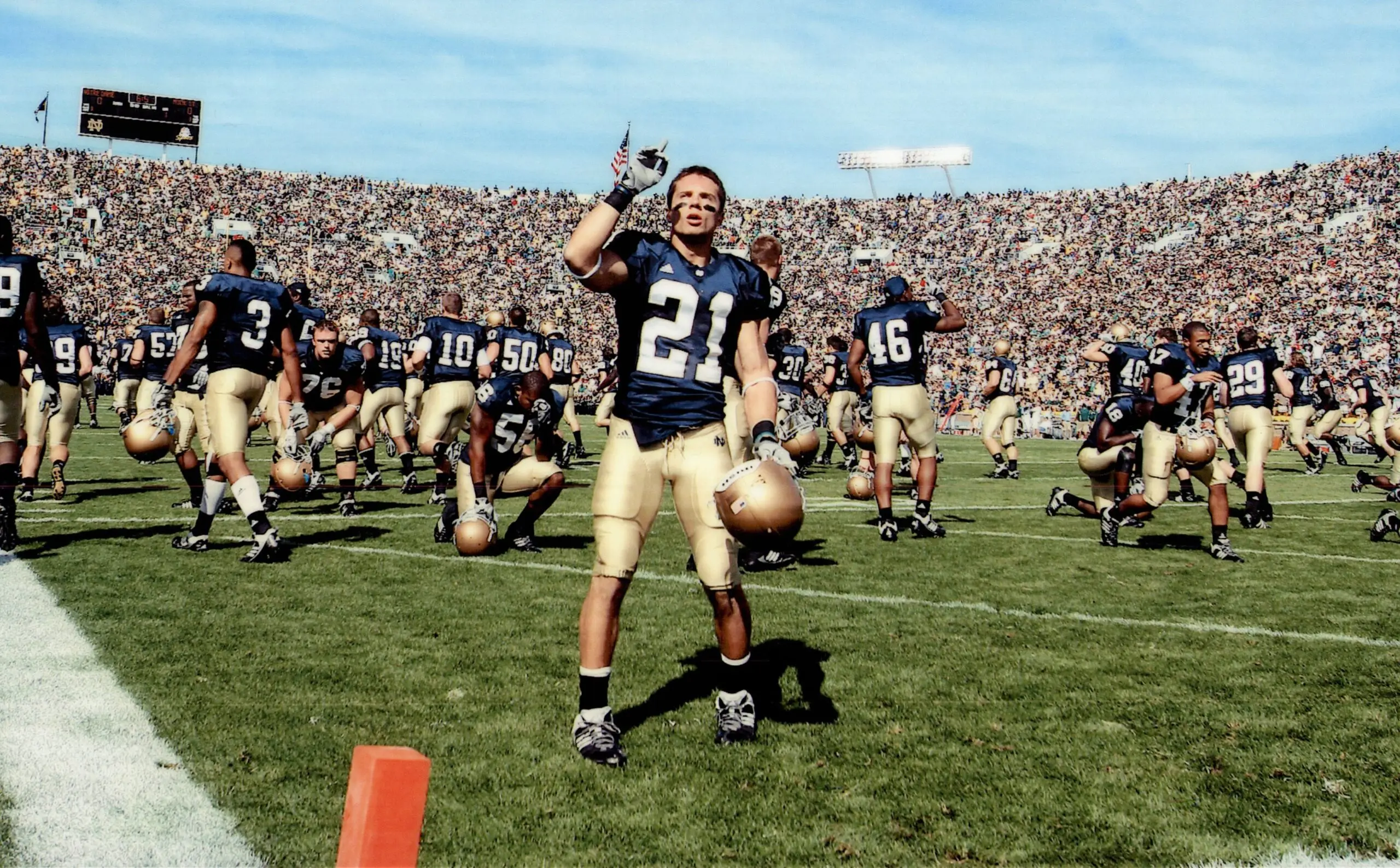Achilles Tendon Specialist in Boston, MA
What is your Achilles Tendon?
The Achilles tendon is a thick tendon located in the back of your leg. The Achilles tendon is the largest and strongest tendon in your body. This tendon links the muscles in your calf to your heel.
You use your Achilles tendon when you walk, run, climb stairs, jump, and many other activities.
If you’re dealing with an Achilles tendon injury in the Boston area, don’t hesitate to contact sports medicine specialist George Theodore, MD today to schedule an appointment. Dr. Theodore was named in the top 1% of America’s Most Honored Doctors by the American Registry and has extensive experience accurately diagnosing and effectively treating Achilles tendon injuries. He is also the Orthopedic Foot & Ankle consultant to the Boston Red Sox, New England Patriots, New England Revolution, Boston Bruins, Boston Ballet, and Harvard University Athletics.
What are some Common Achilles Tendon Injuries?
Your Achilles tendon bears a lot of stress and pressure during everyday activities, as well as during athletic and recreational play.
If you injure your Achilles tendon, it usually falls into two categories, tendonitis or a rupture.
Tendonitis
If your Achilles tendon becomes inflamed, swollen, or irritated it is known as tendonitis.
Tendonitis of the Achilles tendon:
- May occur due to overuse
- May occur from damage
- Can cause pain down the back of your leg
- May cause you to feel pain around your heel
- May show signs of getting thicker and hardening because of tendonitis that could get worse over time
- Can happen from small tears in the middle fibers of the tendon and usually happens to active, younger adults (known as non insertional Achilles tendonitis)
- Can occur where your tendon meets your heel bone, causing extra bone growths, and can happen at any age and at all activity levels
- Sometimes happens due to a change in activity level, tight calf muscles, or repetitive stress to the tendon
Rupture
If you have a ruptured Achilles tendon, it can be a complete or partial break/tear in your tendon.
Rupture of the Achilles tendon:
- Requires immediate medical attention
- You might hear a pop that seems to come from the back of your heel or calf
- Typically results from a sudden injury

Do I Have an Achilles Tendon Injury?
If you have an Achilles tendon injury, you should seek medical attention to get properly diagnosed. Your doctor can listen to your symptoms and check for bone spurs, pain, and swelling.
You may need an imaging test like an X-ray, or MRI. This will give a better overview of what is going on and identify areas of concern.
- An X-ray shows bones and can show bone spurs and if the tendon has become calcified or hardened.
- A MRI will help you see how severe the tendon damage is and what treatment is best for you.
As you talk with Dr. Theodore, you will discuss your symptoms, desired outcomes, and the best way to move forward.
How are Achilles Tendon Injuries Treated?
Treatment depends on how badly injured your tendon is. Some common treatment options include nonsurgical, various types of therapy or surgery.
- Rest
- Ice
- Nonsteroidal anti-inflammatory drugs (NSAIDs) for pain relief
- Heel lifts in shoes, orthotic shoes, cast, splint, or a walking boot
- Platelet-rich plasma (PRP) injections to stimulate healing
- Specific strength exercises to strengthen your calf muscles
- Physical therapy
- Eccentric strength training. This type of exercise helps strengthen your calf muscles to take pressure off your tendon
- Calf stretches and heel drops
- Adjust physical activity to low-impact activities, such as swimming
- Extracorporeal shockwave therapy uses high-energy shockwave impulses to help stimulate the healing process in damaged tendon tissue
- The type of surgery depends on the location and amount of damage to the tendon
- Usually only recommended if the pain does not improve after 6 months of nonsurgical treatment
- Surgery to lengthen your calf muscles (gastrocnemius recession)
- Surgery to remove damaged tendon tissue or bone spurs and repair the tendon (debridement)
- Surgery to remove your damaged tendon tissue, fix the remaining tendon, and give it extra strength by moving another tendon to the heel bone
- Varies depending on the damage to the tendon and if there is more tendon involved, the longer the recovery period, and the less likely a patient will be able to return to high levels of physical activity
- Requires a long recovery period
Schedule an Achilles Tendon Injury Consultation
If you’re experiencing symptoms of an Achilles tendon injury in the Boston area, give sports medicine doctor George Theodore, MD a call today. Dr. Theodore is Boston’s top Knee, Ankle, and Foot Surgeon and is highly trained to assist in Achilles tendon symptoms, diagnosis, and treatment. He is board-certified by the American Board of Orthopaedic Surgery and has performed more than 2,000 surgeries over his 20+ years of experience.
Get Back in the Game

This content has been reviewed by board-certified orthopedic surgeon George Theodore, MD, Orthopedic Foot & Ankle consultant to the Boston Red Sox, New England Patriots, New England Revolution, Boston Bruins, Boston Ballet, and Harvard University Athletics.

